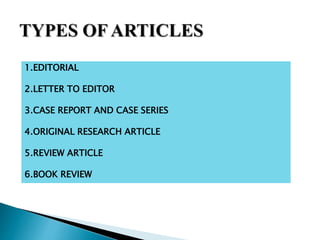Discover the most effective Composing Tips on articles for Blog owners and Web Content Creators
Discover the most effective Composing Tips on articles for Blog owners and Web Content Creators
Blog Article
How Articles Add To Clarity in Creating
The use of short articles is often neglected, yet their effect on clarity in composing can not be underrated. Definite and indefinite short articles serve unique features, directing the visitor toward a nuanced understanding of the text. While "the" suggests uniqueness, "a" and "an" unlock to originalities. Abuse of these articles regularly results in uncertainty, eventually covering the author's intent - articles. Understanding the nuances of post usage is vital for attaining clearness, yet what particular approaches can writers utilize to harness their complete potential?
The Duty of Articles
By assigning nouns as certain or indefinite, articles lead the visitor's understanding of the subject matter, distinguishing in between well-known and unidentified entities. The certain short article "the" indicates a specific noun, while the uncertain posts "a" and "an" recommend a general or non-specific reference.
Including posts properly enhances the comprehensibility of composing, allowing writers to share their designated meanings with better precision. articles. Misuse or noninclusion of posts can lead to obscurity, triggering confusion for the reader. Stating "I saw pet dog" lacks quality and specificity, whereas "I saw a pet" or "I saw the canine" shares unique definitions.
In addition, posts add to the rhythm and flow of sentences, affecting readability. They allow authors to build a sensible structure, linking concepts and helping with understanding. A firm grasp of write-up usage is important for efficient communication, ensuring that the nuances of significance are maintained and the message is supplied plainly. This foundational facet of grammar substantially influences total writing clarity.
Kinds of Articles
Understanding the different types of short articles is essential to grasping their use in composing. Articles can be categorized primarily into 2 kinds: precise and indefinite articles. The definite article "the" specifies a particular noun that is known to the visitor. For example, claiming "the publication" suggests that both the speaker and listener are aware of which particular book is being referenced. This precision helps to route the viewers's emphasis and improves clarity.
In contrast, indefinite write-ups, such as "a" and "an," refer to non-specific nouns. When one says "a publication," it suggests any publication, not one in specific. website link This usage is essential when presenting new concepts or products to the discourse, as it gives a basic framework without constricting the reader to a specific reference.
In addition, write-ups can likewise convey subtleties such as quantity and originality. For example, "an apple" recommends any type of apple, while "the apple" might suggest that it is the only apple in the context. Understanding these distinctions enables writers to successfully manipulate write-ups for greater quality and precision in their interaction.
Articles and Uniqueness

Conversely, uncertain articles like "a" or "an" present nouns in a more basic sense, suggesting that the noun may not be acquainted to the visitor. "a publication" suggests any kind of publication, leaving the specifics open to analysis. This difference is important for reliable writing, as it influences just how information is communicated and recognized.
Common Blunders With Articles
Clearness in composing can usually be endangered by common mistakes with articles. One prevalent error involves the misuse of definite and uncertain articles.

Improving Quality Through Articles
Efficient interaction depends upon the accurate usage of articles, which can substantially enhance clarity in composing. Articles, consisting of "a," "an," and "the," work as signs that assist viewers through the text. Their correct application not only clears up which noun is being referenced yet additionally develops the uniqueness and generalization of the topic.
Using guaranteed and uncertain articles appropriately can assist prevent obscurity. Saying "the automobile" defines a specific automobile, while "an auto" refers to any kind of auto in general. This distinction is vital in ensuring that the reader understands the intended meaning without confusion. Regular usage of posts contributes special info to the overall flow of creating, permitting for smoother changes in between ideas.
Writers need to pay careful interest to write-up usage, as this little yet effective aspect of language can dramatically improve the clearness of their communication. Eventually, the reliable use of short articles changes writing from mere words right into a systematic and accessible message.
Final Thought
In final thought, articles are essential devices in composing, significantly boosting clearness and precision. Proficiency of short article use eventually contributes to an extra meaningful and engaging composing style, promoting much better understanding for viewers.
Report this page